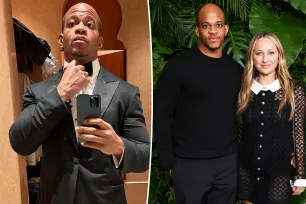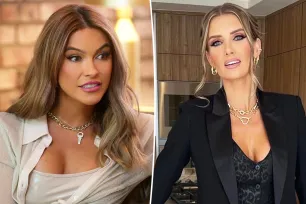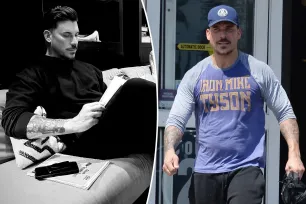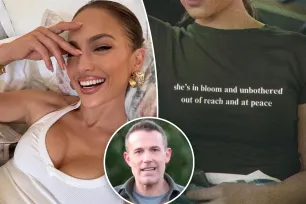We love to hear stars talk, and most stars love to talk. Through their films, they talk to us. Through audio launches, they talk to us. Through their “Ask me anything” sessions on social media, they talk to us. They use these platforms to announce their next films, hint about their political plans, take a ‘friendly’ dig at their perceived rivals, and narrate stories about their journeys in the hope and knowledge that we would lap it all up. But then… Many stars see this as a one-way street. They will talk. You will listen. And more often than not, ‘you’ also includes the press and media. We are in a place where stars are so powerful that they decide the place, the topic, the duration, and most of the times, what makes the final cut. It is in these trying times that a journalist has to ply their wares and ask questions that reflect the mood of today’s society.
ALSO READ: Kerala cinema: Women stand up against sexual harassment, men’s silence speaks volumes

Accessibility is a major concern for journalists, especially on the entertainment beat, considering exclusivity is the name of the game for all the superstars of cinema. Many celebrities who used to be a message or a call away when they started out in the business, become inaccessible over time. This is a phenomenon that all entertainment journalists understand. Honestly, it isn’t like journalism is flawless. It isn’t like all journalists are beacons of societal change or sacrosanct. But for people who still believe in the power of the fourth estate, questions are the only weapon in their arsenal. Since the time Justice Hema Committee report was revealed to the public last week, there has been relentless coverage of the issue. It has not just been restricted to Kerala media, but has reached all parts of the country. It has been the debate on many primetime shows, the topic of contention in various sections of social media, and the dinner-table conversations in many households in the country.
The fire raging in Malayalam cinema is now finding its path through the various industries, including Tamil, Telugu, and Hindi. It is but a given that every actor, who meets the press for any reason whatsoever, will be asked a question pertaining to the Hema Committee Report. Call it sensationalism if you want, but it is important that we know what our beloved stars want to say about this development concerning women’s safety and security in cinema. In Kerala, the silence of Mammootty was considered more deafening than the din surrounding the never-ending chaos the report created. That is why, it was even more shocking when Rajinikanth said, “I don’t know about it” when he was asked about the same almost ten days since the report was made public. And the likes of actor-politicians Kamal Haasan and Vijay are silent too. As actor Raadika Sarathkumar pointed out in an interview to Sun News, “Many top actors of Tamil cinema found the time to write a post about the F4 racing in Chennai, but it is appalling to see them observe radio silence on the Hema Committee report.”
Tamil cinema might live in an echo chamber with many important voices dismissing the Hema Committee Report as a Malayalam industry thing. Let’s for a moment buy this argument. Okay, this is not a Tamil cinema problem. But what is the name of the actors’ union in Tamil cinema? It is not language specific as AMMA (Association of Malayalam Movie Artistes). Here, it is called Then Indhiya Nadigar Sangam (South Indian Artistes Association), so it is very much their problem too, right? When the General Secretary Vishal was asked about it after his birthday function, he said an investigating body similar to the Hema Committee in Kerala will be constituted by the Nadigar Sangam in Tamil Nadu. Then why does Karthi, the treasurer of this organisation, not talk about it during the press meet of his next film, Meiyazhagan. Responding to the media at the event, he said, “This is not the place to have this conversation.” Recently, actor Jiiva, who called it a ‘Malayalam cinema issue’ got into a verbal altercation with a journalist, and called him ‘foolish’ to ask about “an inauspicious thing during an auspicious event.” He was opening a new shop in Theni, Tamil Nadu. Even actor-politician Suresh Gopi said, “Ask me a question about AMMA when I walk out of the AMMA building. When I walk out of the party office, ask me about politics.” These responses create an impression that there is a time and place for asking such questions to our mostly inaccessible stars. So, when do we ask questions? Where do we ask questions? What questions can be asked? Will everything be policed by celebrities now? Of course, the image of journalists have taken a hit because of certain sections not asking the right questions at the right time. It is a fair assessment too. But wherever possible, never stop asking questions. That is the least we can do.
ALSO READ: Mohanlal breaks silence: Not part of power group (cited in Hema report); AMMA alone should not be crucified
Once again, this is a seemingly free society, and the right to question is what has propelled civilization for all these years. There is a duty to answer, and a right to answer. A person can always not answer the questions that are asked to them. That is their personal right, and no one has the right to infringe on that right. Feigning ignorance seems better than being dismissive of the question. If the stars are indeed living in a bubble, and not feigning ignorance, then they can obviously ask for time to understand the situation, and come up with an answer. Also, many celebrities, who have a lot to lose, and are still losing a lot, have stepped up to the plate. They are sharing their opinions when asked because they understand that this is a watershed moment in Indian cinema. When you are an influential actor, and when your fellow colleagues are fighting for their right to be heard, their right to work, their right to justice, their right to opportunity, then silence might not cut it. There is now a duty to answer.
Again, questioning someone for their opinion about a pertinent issue isn’t always to crucify them. It could be a source of comfort for many survivors to find the strength and space to tell their stories. It could be the required boost for the changes to be made at breakneck speed. Of course, it could also become a content for trolls. It could be misconstrued or misrepresented or misjudged or sensationalised. Probably why it is all the more important for these stars to share their opinion on this issue. I repeat, it isn’t like journalism is flawless. It has its problems, and journalists should be, and are, held accountable for every word that is being written or said. But at the end of the day, it is the intention to tell the story and the truth that matters. It is the same for the stars too.
Clear the air, and talk to the people who are waiting to hear you talk. The stars know their influence on people looking up to them. Yes, the ardent fans will see this move as a “fire move” of shutting down journalists, and hence perceived sensationalism. But there are scores of people who are on the fringes waiting for a ray of light to guide them. Don’t wait for an audio launch, a social media ‘AMA’ or your film’s release to talk about an issue affecting your own brethren. Just like the people that stars ‘save’ in their films, here too are survivors in need of a hand to hold or shoulder to feel support. They still believe a hero would come to save the day. The least they can do is talk.
Disclaimer: The copyright of this article belongs to the original author. Reposting this article is solely for the purpose of information dissemination and does not constitute any investment advice. If there is any infringement, please contact us immediately. We will make corrections or deletions as necessary. Thank you.







